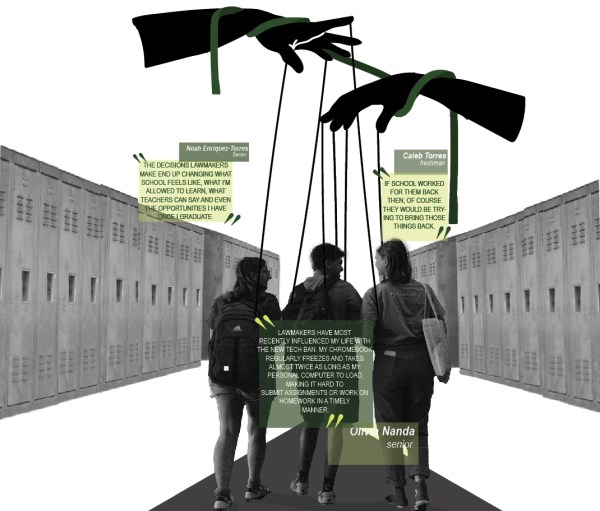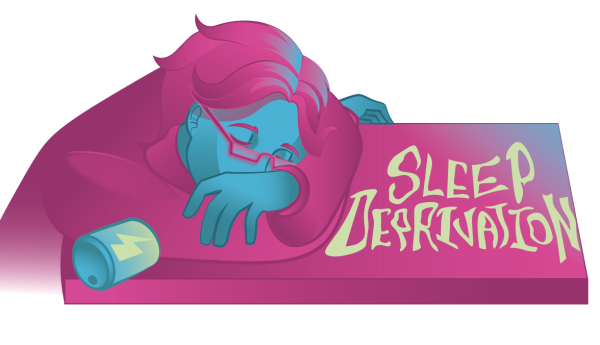Bill changes graduation requirements
Education legislation reduces testing and introduce endorsements

After years of the four by four high school graduation plan, the Texas State Senate has approved House Bill 5, which includes less standardized testing, new graduation requirements, and different requirements to be considered in the top ten percent for automatic admission to public Texas universities or colleges.
Students entering 9th grade in 2013 or before continue on existing graduation plans, while students entering 9th grade in 2014 and beyond will adopt the new graduation plan.
Austin ISD will follow the new educational laws under the bill, however the Texas Education Agency may make changes to the graduation requirements. After TEA make its final decision, AISD administrators will work to ensure that graduation policies are amended for the incoming freshman class according to counselor Karina Reyna.
“This plan will be in effect next year, it will only be set in place for incoming freshman, so this should not affect our current students and/or scheduling process,” Reyna said.
The final ruling on House Bill 5 will be determined in late January.
“We as counselors, will have to work fast to ensure that our classroom presentations to incoming freshman will be accurate and up-to-date,” Reyna said. “I don’t foresee a huge problem, if you look at the basic requirements of HB5, you will see that they are similar to our current Recommended plan.”
The new graduation plan allows for more students to graduate on time and allow them to enter a 4-year university according to Reyna.
“I think ultimately this is a way for all students to be successful and be given the opportunity to take courses that fulfill their own unique interests,” Reyna said.
Students will no longer be required to have 16 credits total of English language arts, mathematics, social studies and science, four of each, but four English language arts, three mathematics, three social studies, and three sciences.
“I think it’s not fair to all the preceding classes because we had more required core academic credits,” senior Natalie Pelayo said.
Pelayo believes some students will not take the optional math or science course, ultimately putting them in danger of not being prepared for college.
“During the review period at the beginning of the school year, I usually feel like I lost most of the knowledge from the school year before because of the [summer] break from the material,” Pelayo said. “I can’t imagine entering college after a year-long break from math or science.”
With less required core classes, students will be required to earn one endorsement or more in science, technology, engineering and mathematics, business and industry, arts and humanities, public services or multi-disciplinary.
“New reforms encourage partnerships with industries that provide high-demand jobs in construction, manufacturing, transportation, and utilities – jobs that make up a quarter of the workforce,” Texas District 25 Senator Donna Campbell said in a letter to Texas residents.
Senior Garrett Custer believes the endorsements will allow students to find the field they are interested in.
“Just think about all of the endorsements that will give meaning to these kids’ otherwise meaningless lives,” Custer said. “I can’t think of a better way to trick these saps into thinking that they are worthy of anything.”
As of now, the basic requirements are the same for each endorsement, as long as the student meets the requirements that endorsement and takes Algebra 2, two advanced sciences, and completes a Performance Acknowledgement, students may change which endorsement to complete.
“It [HB5] is written in a manner that allows for students to change plans through their four years,” Reyna said. “I know that there has been a discussion of how counselors and parents would be involved in that process, but I suspect it would entail a parent conference with the student and counselor.”
The 15 STAAR tests required for graduation has been reduced to five, additionally some districts will have the options to give students end-of-course exams in English III and Algebra II.
“By emphasizing fewer tests, students will spend more time in the classroom with focus on five critical subjects: English, English II, Algebra, Biology, and History,” Campbell said.
The education reforms will allow students that are unable to attend college to find more opportunities according to Campbell.
“Every student could use vocational training,” career and technical education teacher Kimberly Nunnery said. “It helps with real world experiences. It gives you more insight on what a career or field will be like. Not everyone will go to college. Some people don’t follow the traditional path, not everyone is a four-year college kid.”
Students interested in qualifying in the top ten percent of his or her class for automatic admission to any Texas public college or university must have earned the Distinguished Level of Achievement.
“The bill will not benefit the incoming students. They will be required to take more steps in order to qualify for automatic admissions,” sophomore Garrett Jordan said. “Getting and staying in the top percentile required for the University of Texas in Austin is a hard task to accomplish already.”
Your donation will support the student journalists of James Bowie High School. Your contribution will help cover our annual website hosting costs. Any contributions made through this service are NOT tax deductible. If you would like to make a tax deductible donation OR to subscribe to our print edition, please contact us at [email protected].





